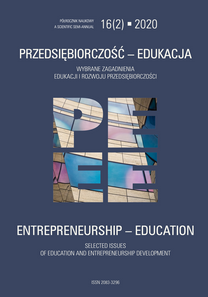The Efficiency of Third Age Universities in Poland: a non-Parametric DEA Approach
The Efficiency of Third Age Universities in Poland: a non-Parametric DEA Approach
Author(s): Łukasz BrzezickiSubject(s): Higher Education , Gerontology, Sociology of Education
Published by: Wydawnictwo Uniwersytetu Komisji Edukacji Narodowej w Krakowie
Keywords: data envelopment analysis; DEA; efficiency; higher education; third age universities;
Summary/Abstract: The growing number of the elderly in many countries has made it necessary to develop a wellthought-out policy. In the European Union, the concept of lifelong learning is being promoted which includes third-age universities aimed to activate the elderly through education, learning, expanding knowledge and developing interests, as well as a way of actively spending free time and meeting new people. Third age universities (U3A) have been operating in Poland for over 40 years, but they are very rarely analysed. This article measures the efficiency of twenty U3As operating within state universities in Poland in the 2017/2018 academic year. A non-radial SBM model, which is a non-parametric DEA method, was used to analyse efficiency. The results show that seven U3As were 100% efficient. Two were in a quantitative (number of students) or a qualitative (number of classes) model, and five in both models simultaneously. However, most universities focused on the number of students rather than the number of classes offered to their students.
Journal: Przedsiębiorczość - Edukacja
- Issue Year: 16/2020
- Issue No: 2
- Page Range: 141-151
- Page Count: 11
- Language: English

